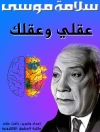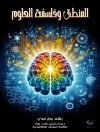A philosopher explores the many dimensions of a beguilingly simple question.
Why did triceratops have horns? Why did World War I occur? Why does Romeo love Juliet? And, most importantly, why ask why? Through an analysis of these questions and others, philosopher Philippe Huneman describes the different meanings of ‘why, ‘ and how those meanings can, and should (or should not), be conflated.
As Huneman outlines, there are three basic meanings of why: the cause of an event, the reason of a belief, and the reason why I do what I do (the purpose). Each of these meanings, in turn, impacts how we approach knowledge in a wide array of disciplines: science, history, psychology, and metaphysics. Exhibiting a rare combination of conversational ease and intellectual rigor, Huneman teases out the hidden dimensions of questions as seemingly simple as ‘Why did Mickey Mouse open the refrigerator?’ or as seemingly unanswerable as ‘Why am I me?’ In doing so, he provides an extraordinary tour of canonical and contemporary philosophical thought, from Plato and Aristotle, through Descartes and Spinoza, to Elizabeth Anscombe and Ruth Millikan, and beyond.
Of course, no proper reckoning with the question ‘why?’ can afford not to acknowledge its limits, which are the limits, and the ends, of reason itself. Huneman thus concludes with a provocative elaboration of what Kant called the ‘natural need for metaphysics, ‘ the unallayed instinct we have to ask the question even when we know there can be no unequivocal answer.
Daftar Isi
Introduction: Introduction
1. Why Is Oscar Pistorius Guilty of Murder?
2. Why Do Things Fall When We Let Them Go?
3. Why Did Mickey Mouse Open the Fridge?
4. Why Do Triceratops Have Horns?
5. Why Did World War I Happen?
6. Why Did Napoleon Lose at Waterloo?
7. Why Were There American Soldiers on the 15:17 Train from Amsterdam to Paris on August 21, 2015?
8. Why Does Romeo Love Juliet?
9. Why Am I Me?
Conclusion: Why ‘Why?’
Tentang Penulis
Philippe Huneman is Research Director at the Institut d’Histoire et de Philosophie des Sciences et des Techniques, CNRS/ Université Paris I Panthéon Sorbonne and the author of several books in French and English, including
Philosophical Sketches of Death in Biology: An Historical and Analytic Investigation (2022).












